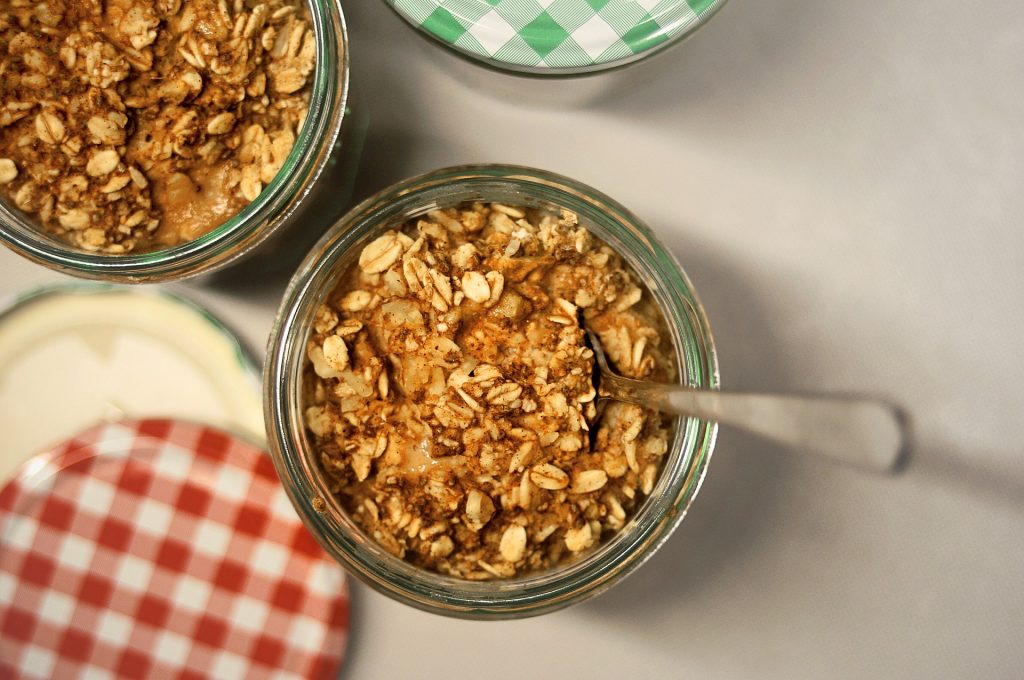Inflammatory bowel diseases like Crohn’s disease and ulcerative colitis can make it difficult to get proper nutrition. It is important to manage your diet as well as possible to maintain good health and avoid complications. Everyone is different, so it can be helpful to identify your own “triggers,” or foods that cause symptoms most often. An easy way to do this is to keep a food and symptom log, either in a notebook or on an electronic device like a smartphone or computer.

Diet strategies that can help with IBD:
- Have 5-6 smaller meals daily. This can help increase your calorie intake and prevent symptoms from overeating.
- Get enough lean protein. Some good sources are fish, shrimp, eggs, chicken breast, or turkey breast. Try not to add too much butter or oil when cooking.
- Fruits and vegetables are good sources of vitamins, minerals, and cancer-fighting antioxidants. Avoid fruits with tough peels or seeds, and instead try bananas, mangoes, cantaloupe, or papayas. For vegetables, eat them steamed or pureed, like squash or pumpkin.
- Choose fats wisely and watch portions. Good sources include avocados, olive oil, and smooth nut or seed butters, like peanut, almond, or sunflower butters.
- If dairy aggravates symptoms, try alternatives like almond, rice, or soymilk. Make sure they have added calcium and vitamin D.
- Although high fiber grains can cause symptoms, it can help to focus on soluble fiber, which is found in foods like oats and barley.
- Check with your physician or Registered Dietitian about supplements. In some cases, specific vitamins, minerals, or high calorie liquid supplements (like Boost® or Ensure®) might be helpful.
Physical Activity
Regular physical activity can reduce stress and improve mood and overall health. Some medications for IBD contribute to weight gain, and physical activity can be a healthy way to control weight. For those who want to gain weight, physical activity can improve appetite and help build lean body mass. It is important to check with your physician to make sure it is safe for you to exercise and determine if there are any special considerations related to your current health, previous surgeries, or medications.
Once you have the okay to participate in physical activity, it may be hard to figure out the best approach. If you find it difficult or stressful because of your symptoms, it may help to:
- Join a gym instead of trying to exercise outdoors.
- Start slowly, with low impact activities like yoga, Pilates, tai chi, walking, or swimming.
- Check out exercise DVDs to try at home from your local library, video store, or online.
- Stay active by walking in a mall or large store or find a local park or natural area with restrooms. Be sure to always have toilet paper with you!
- Purchase a new or used treadmill or some weights to use at home.
- Avoid exercising when it is very hot and make sure to stay hydrated. This is especially important when you have had diarrhea.
- Listen to your body. If you are having severe symptoms or not eating enough to support exercise, you are generally better off resting.
Managing Stress
Stress can make IBD symptoms worse. Reducing stress will not make your condition go away, but it can make the symptoms less severe. Here are some tips:
- Increase your physical activity. Try some of the suggestions listed above.
- Establish a relaxation routine. Practices like yoga and meditation can be great ways to relax. Try a class or visit your local library for a DVD to get started at home.
- Get adequate sleep. Allow enough time for adequate sleep – avoiding eating or drinking right before bed – and try to establish a relaxing pre-bedtime routine like reading a book or taking a warm bath.
- Reduce stress in your daily life. This may seem easier said than done, but it is important to eliminate unnecessary stress. This may require saying “no” more often or working with your family members or partner to better divide responsibilities. Do your best to build some down time into your schedule every day.
- Seek support. It is important to realize that you do not have to struggle with your condition alone. Managing an IBD in addition to everyday life can be stressful, and it may help to talk with family, friends, or even a psychologist. There are also hundreds of support groups for people with IBD. Visit the Crohn’s and Colitis Foundation (www.ccfa.org) to find one near you.
Did You Know?
Dealing with an inflammatory bowel disease like Crohn’s disease or ulcerative colitis can be stressful and achieving proper nutrition can be difficult. It can be helpful to:
- Identify and avoid problem
foods. - Make nutritious choices.
- Incorporate physical
activity. - Manage stress.

